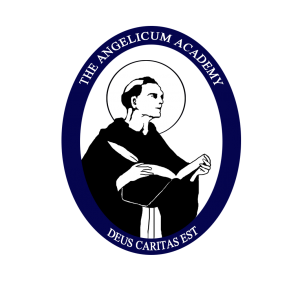This 3-credit hour introductory course in theology consists in a careful reading of three texts. C.S. Lewis’ Miracles provides a philosophical propaedeutic to the theological understanding of Divine Revelation. It addresses the preliminary questions of whether Revelation is possible and what the criteria are for evaluating the Christian claim that God has revealed himself in Jesus Christ. The Second Vatican Council’s Dogmatic Constitution on Divine Revelation (Dei Verbum) presents an authoritative expression of the Church’s self-understanding of Revelation and its relation to Scripture, Magisterium and Theological Tradition as that tradition was taught by great witnesses and scholars. G.K. Chesterton’s masterpiece The Everlasting Man offers a broad historical-theological overview of man’s place in nature and Christ’s place in history. ENROLL HERE.
Required Texts:
C.S. Lewis, Miracles (Harper San Francisco; 2001; ISBN: 0-06-065301-9)
“Dogmatic Constitution on Divine Revelation” (Dei Verbum), Vatican Council II
G.K. Chesterton, Everlasting Man in G.K. Chesterton, Collected Works (Ignatius Press, San Francisco; 1986; ISBN 0-89870-117-1) [Note: Everlasting Man is available also as a single volume. However: 1) I will be referring to page numbers in the above edition; 2) The recommended edition contains two other GKC masterpieces which deserve to be in your permanent library: St Francis of Assisi and St. Thomas Aquinas.]
Course Objectives:
• To learn to read philosophical, magisterial, and theological texts carefully and critically.
• To be introduced to the works of two of the 20th century’s foremost Christian apologists.
• To understand the philosophical presuppositions for the possibility of divine revelation.
• To acquire the necessary standards to evaluate historical claims of divine revelation.
• To understand the Church’s doctrine on Revelation, Tradition, Scripture, and Magisterium.
• To understand man’s place in nature and Christ’s place in history.
Once you enroll in the course, you will be emailed a link along with a user name and password to get into the online classroom. Once in the classroom, you will have access to your theology course, the syllabus, video lectures and Fr. Fessio’s extensive coursework study questions. Each student is expected to prepare for each online class session by: (a) carefully reading the chapter or chapters to be covered, attempting to answer the Study Questions for that material; (b) attempting to determine the overall structure and intent of each chapter. The questions for the midterm and final will be taken exclusively from the Study Questions.

